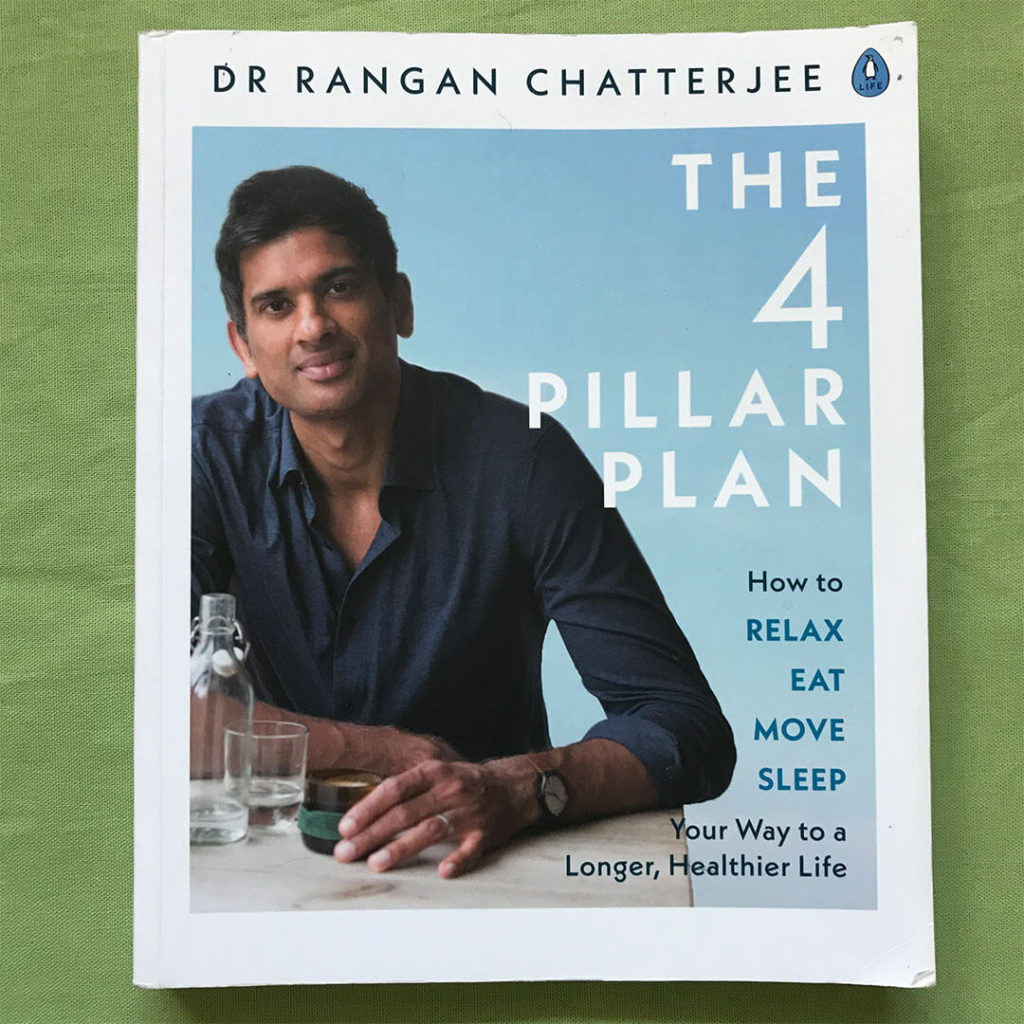

I was given this book by my Mum at a time when I seemed to have even less time than usual to achieve everything I felt I needed to, when I skim read it (at speed!) my first feelings were “great, another 20 things to fit into my life”! However, following a slower, more thorough read through, I really like this book and the idea that it suggests:
“We’re all familiar with the idea that lifestyle can be the cause of disease. What’s not common knowledge is that a change in lifestyle can also be the treatment and prevent us from getting sick in the first place”
Everything in the book is based on the structure of 4 ‘pillars’ and making small, sustainable improvements to each pillar can help your physical and mental health. The 4 Pillars are:
- Relax
- Eat
- Move
- Sleep
Each pillar has a set of ways you might examine and improve the way you Relax, Eat, Move and Sleep – Dr Chatterjee states that the idea is create balance across all the pillars “Achieving balance is what will lead to the biggest improvements and, most importantly, the sustainable ones” .
- How do you score on each pillar?
- Which ones are you doing already?
- Which ones are you prepared to try?
Relax
- Me time every day
- Weekly screen free Sunday
- Keep a gratitude journal
- Daily practice of stillness
- Eat one meal a day around a table – no devices at the table
Eat
- De-normalise sugar
- Eat five different vegetables every day
- Eat all your food within a 12 hour window
- Drink 8 glasses of water a day
- Unprocess your diet – avoid any food product with more than 5 ingredients
Move
- Walk at least 10,000 steps a day
- Do a form of strength training twice a week
- Do a form of high intensity interval training twice a week
- Make a habit of movement snacking
- Do daily glute exercises to wake them up
Sleep
- Create an environment of absolute darkness
- Spend at least twenty minutes outside each morning
- Create a bedtime routine
- Manage your commotion
- Enjoy your caffeine before noon
I very rarely make New Year’s Resolutions and much prefer March (arrival of Spring) or September (back to school) for setting intentions and starting something new - this blog post was supposed to have been published in September but the last quarter of 2020 was a bit crazy and it never got finished so I’m using the New Year (even one that started with Lockdown 3.0) as a prompt for making some changes.
Relax - Yoga / stretching
Starting to do some yoga and stretches every morning, a combination of the Ashtanga Sun Salutation, the ‘wake up your glutes’ exercises in the book and a few other random stretches I’ve learnt over the years - neatly combining the me-time in the Relax pillar and the daily glute exercises in the Move pillar. To keep me on track I’m using the Do Lectures Habit Calendar, as it pointedly states at the bottom “we are what we repeatedly do” and there is a surprising amount of motivation from seeing the crosses add up across the page. The other thing I’ve done which seemed very obvious after I’d done it, was to clear a space for my yoga mat and leave it rolled out across the floor so I don’t have to actively do anything in the morning – just get out of bed, clear the cats and children out of the way and start trying to reach my toes…
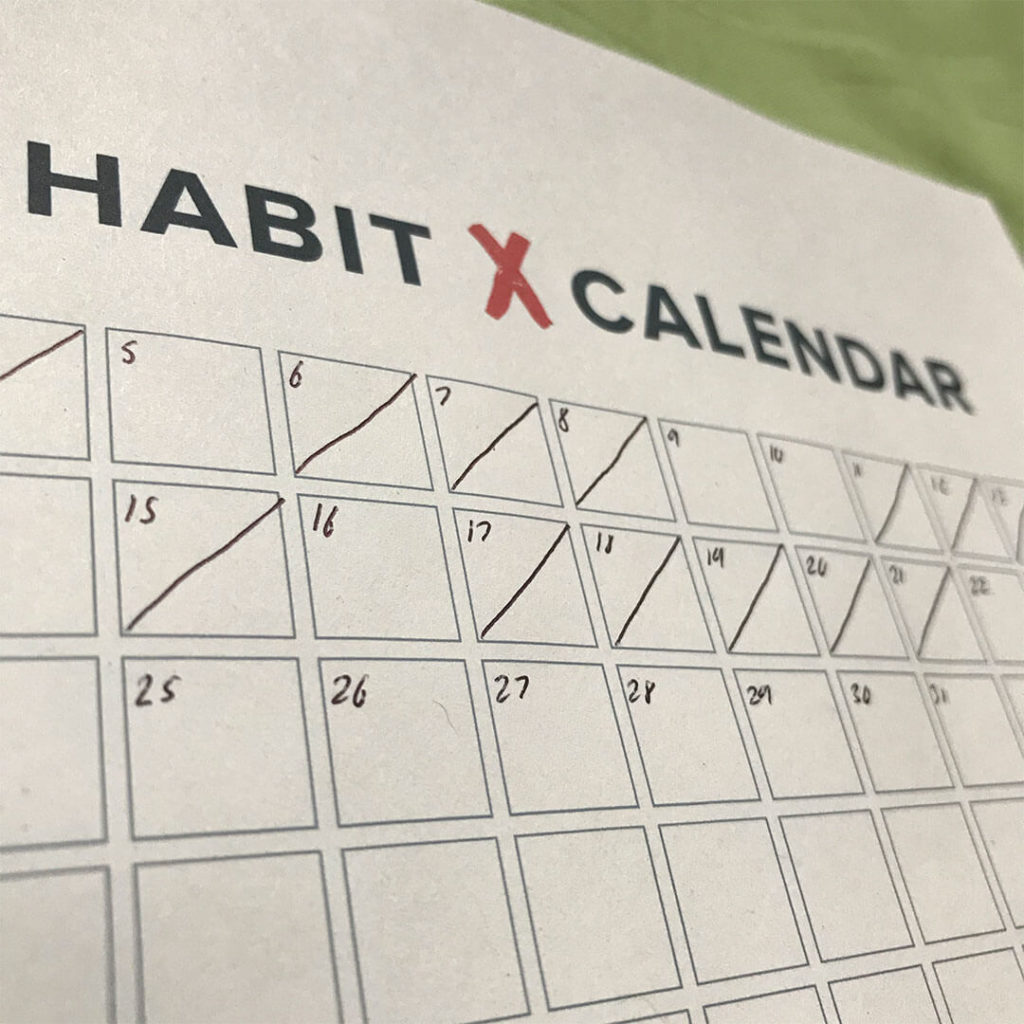
Relax - Gratitude journal
I’ve resurrected my daily gratitude journal / diary and again, leaving it by my bed with a pen that works makes it much easier. Surprisingly on the grumpiest of days there is usually something positive to write about – however small. I can’t say I’ve noticed any explicit increased sense of wellbeing – and nor have I managed to write in it everyday, but overall it seems to help me remember more positive things that have happened, rather than the more negative things that it always seems easier to focus and dwell on (such as that embarrassing pause in a conversation, or the tone of an email I got wrong).
There are various published articles about the benefits of journaling, particularly about gratitude journaling such as this Huffpost article here or this Psychology Today article here
Eat – More vegetables
Partly for environmental reasons and partly for health reasons, I’m currently attempting to eat more vegetables and less meat which is difficult in a house of confirmed meat eaters but I’m trying to swap the meat in some of my meals for a vegetable or pulse alternative. I’m also trying to eat a wider variety of vegetables, particularly of different colours as encouraged by Dr Chatterjee with his ‘eating the rainbow’ suggestions. I had also started to eat the vegetarian options when we were allowed out for meals and I’m planning to do this again once restrictions lift and we can go back to our local pub.
Eat – Eating in a 12 hour window
The idea of daily ‘micro fasts’ is one that really interests me, it is based on the thought that humans were designed to go without food for varying and longer periods of time and therefore constantly eating on a 3 or 4 hourly basis perhaps isn’t very good for our bodies. It is also called TRF or Time Restricted Feeding and although there is limited data referenced in The 4 Pillar Plan, it seems to enhance a process called autophagy which is essentially the cleaning up mechanism in the body. Achieving a 12 hour food free window has involved a certain element of reorganisation as I always used to eat very late after the Small Boys were in bed and everything else had been done, I’m now trying to eat with the Small Boys earlier in the evening and then not eat until later the next morning which usually adds up to 12 or 14 hours. I certainly don’t manage it every day as often family life / work / other stuff gets in the way but I’m probably achieving it a few times a week. I have no idea whether my autophagy processes are more effective but I’ve noticed that I don’t feel as hungry (or hangry!) as I used to.
Move – High Intensity Training
Since the Covid restrictions have stopped our indoor boxercise class, I’ve started doing HITT / Tabata with FitClub UK outside or on Zoom. It is a circuit style class with a high intensity exercise for 20 seconds, followed by a 10 second ‘rest’, then repeating that 8 times, then moving onto the next exercise. I used to think 20 seconds wasn’t very long, but when you are trying to do kettlebell lifts or running planks or tuck jumps it seems to last a very long time indeed! It certainly gets your heart rate going.
Sleep – Managing my commotion
I’m probably fortunate that I’ve never had significant problems with going to sleep or staying asleep, but I often lie awake waiting to go to sleep and finding my mind racing through an endless to do list, or worse remembering something critical that I need to do tomorrow. I’ve started using a few techniques, some from The 4 Pillar Plan and some I’ve gathered along the way elsewhere:
- Getting off the sofa, switching the random rubbish on the telly off and going upstairs at a reasonable time
- Putting phones, ipads and laptops in the office – the negative effect of that addictive, slightly blue glow on sleep quality is well documented
- Doing a brain dump before bed – write everything I can think of down on a piece of paper (one thing per piece), even if I don’t do anything else with them, for some reason it is enough to get them out of my head
- Use the breathe in, pause, breathe out technique described in the Relax pillar in the book
I think the combination of these small changes has made me more resilient to the stress we are all facing, whether in response to internal or external stressors. The ones I have chosen have also been relatively easy to implement and seem to be sustainable (so far at least!), I certainly don’t manage to do everything everyday but over the course of a week, I’m much happier with the way my mental and physical health are going. I would definitely recommend this book and have returned to it several times over the past year, so it turns out that mothers (and business coaches) are right about most things after all!
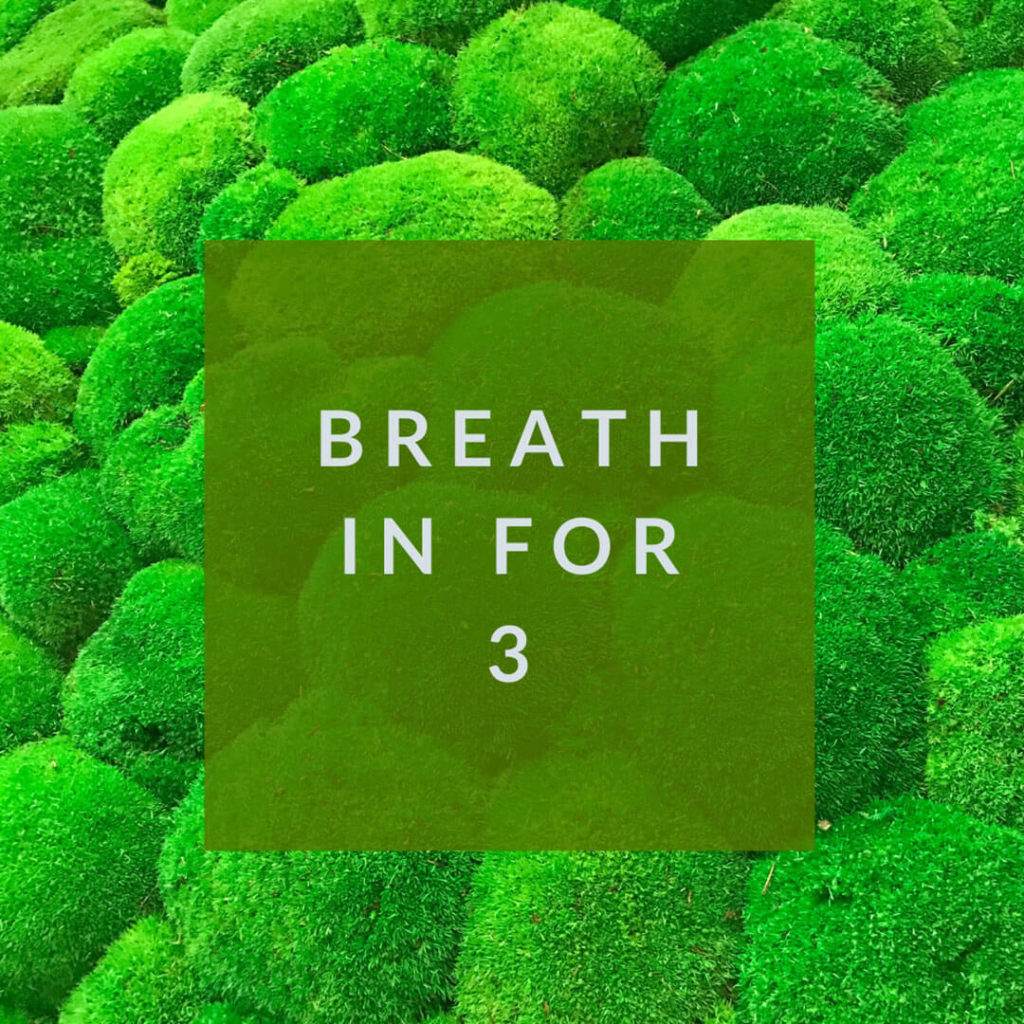
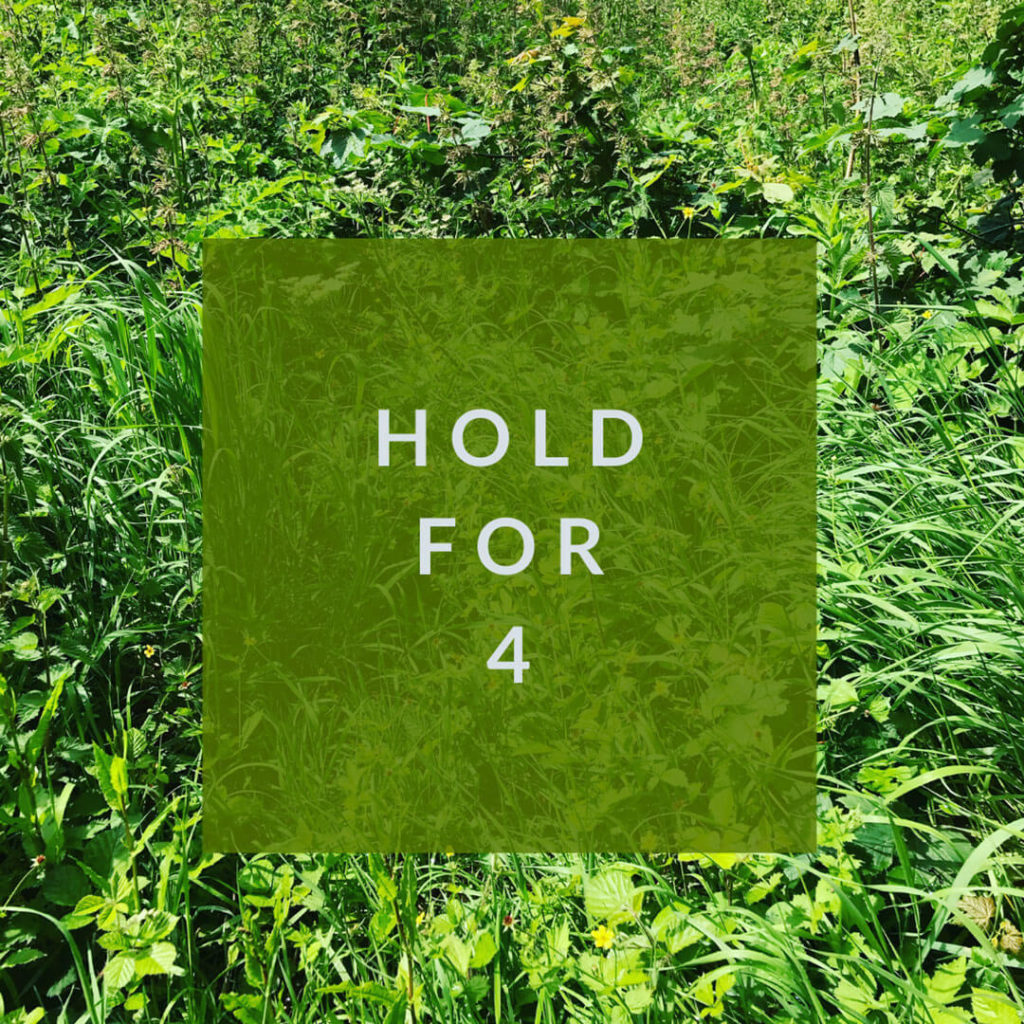
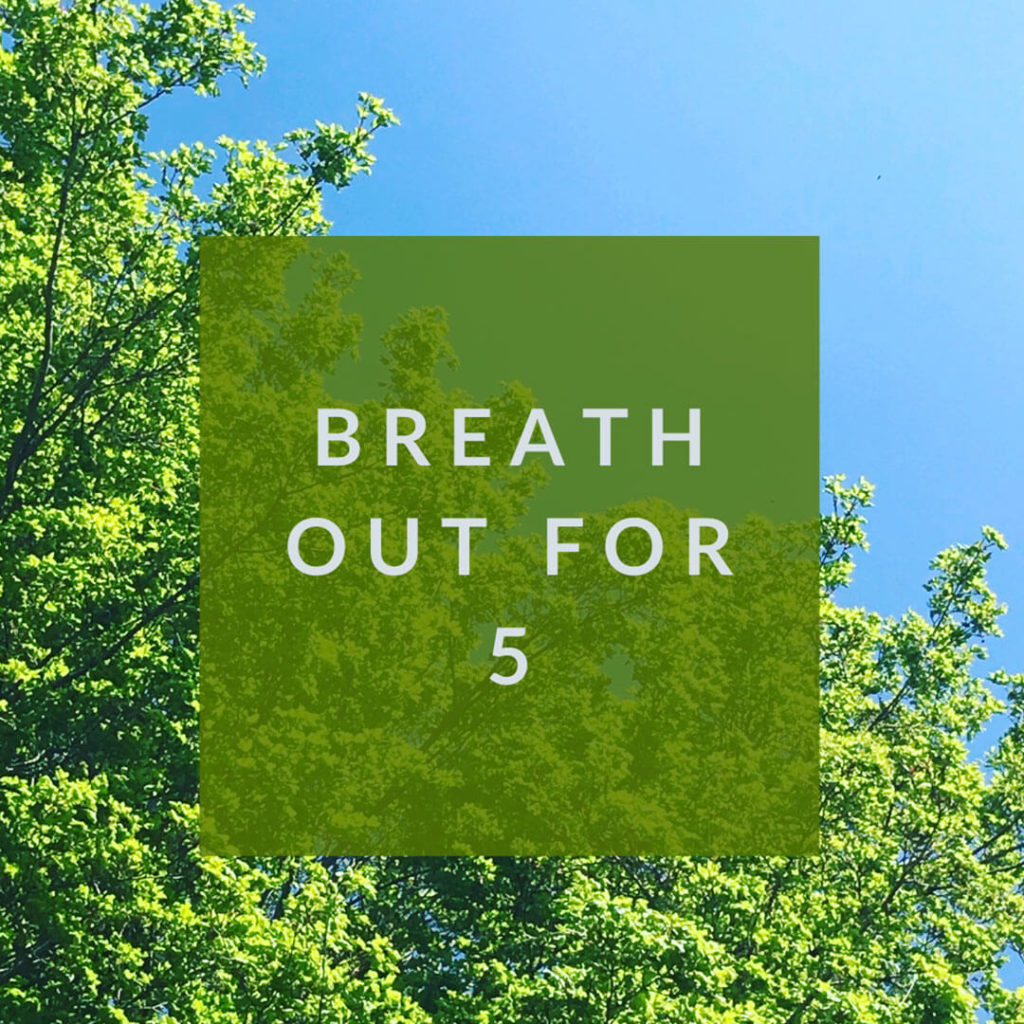
Thanks for the review, Helen. I found several things in there that I am going to try out myself, so thank you. It struck me that Covid restrictions have forced you onto Zoom for exercise, like many of us. I wonder how differently you would have written this in a world without Covid-19 - do you think you've been able to work around the restrictions well enough, or is there something in the Four Pillar Plan that you yearn to do but cannot?
Hi Duncan,
Thank you for your comment and I'm pleased my blog post has given you some ideas! I think the biggest difference that Covid and Lockdown 3.0 has forced is a significant reduction in the amount of time I would usually spend outside (or at least out of the house!) Usually the school run provides a once or twice daily chance for a brisk walk along the bike path but obviously with the school closures this isn't happening. I would usually try to run one evening a week but with the shorter days, dark evenings and current work / parenting load in daylight hours, this just isn't possible for me at the moment. Spending time outside in daylight is something that I really miss, but the days are starting to get slightly longer and Spring is coming so hopefully things will be more positive soon.